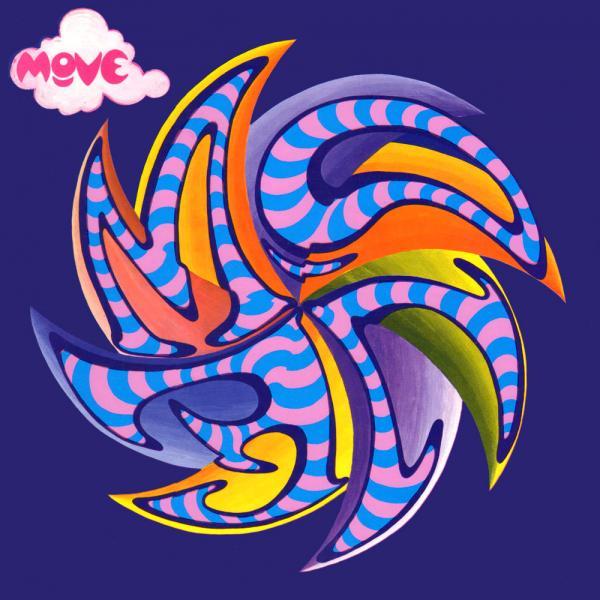


The Move: Move
Album #91 - March 1968
Episode date - September 27, 2019
In the late sixties, it would have been a good idea if someone had written “A Hippie Handbook for Working Musicians.”
I know for sure of at least one band who would have benefited enormously from such a pamphlet. The Move most certainly were hippies. Roy Wood, the band’s leader and primary songwriter, had an appearance that was dramatic in its embrace of hippie fashion, looking something like the cowardly lion, with a pointy beard and a mane that eventually grew long and wild enough to make any Rasta jealous. He often painted his face with strange designs and wore outrageous clothing, even by stringent hippie standards. In a sense, he was a leader in the field of hippiedom, and yet as a musician, he did a few things that now seem sort of daft.
For instance, any British band worth its reputation would know that one of the first things they needed to do was crack the American market. After all, it was twenty times the size of the UK market and full of hippies who longed for the sound of anything exotic, but The Move really never even tried to break in America. Worse, Wood insisted on writing hit singles at the exact moment when hippies were dismissing 45 RPM records as too juvenile for their presumably refined sense of culture. The Move released over a dozen singles, nine of which were top 20 hits in the UK, but not a one that even made a brief appearance in the American market. In the U.S., The Move may as well have not even existed, which perfectly explains why I hadn’t heard their music until decades later. What a shame. As a kid, I would have lovedsongs like “Night of Fear,” “I Can Hear the Grass Grow,” “Fire Brigade” and especially “Blackberry Way” but the band never got the memo, nor did I.
The Move’s first hit single dated back to 1966, but at a time when pop bands might release as many as three albums per year, they didn’t release their debut album until March 1968. They took longer to get the album put together than the length of some of their competition’s entire careers. Of course, none of this meant anything to me at the time, because the band was far removed from my radar. By the time I tuned in, The Move had turned on and burned out, providing the bones for Electric Light Orchestra and leaving the rest of us to sort through the bits and pieces of their career. When they were finally dragged to my attention, I was stunned by what I heard. Listening to The Move in the 21stcentury was like discovering a new collection of psychedelic nuggets that eclipsed most other songs that fit such a description. In their own time, The Move resembled (and rivaled) The Beatles, The Kinks and especially The Who for quality of output, particularly in regard to their penchant for pop singles. Also like The Who, The Move were always looking for ways to appear outrageous, at one point destroying television sets onstage, but while The Who shifted to ‘album rock’ with “Sell Out” and most significantly, the rock ‘opera’ “Tommy”, The Move remained stagnant (ouch).
Despite the antics and the extracurricular weirdness of the band, The Move were genuinely good at what they did. They wrote extraordinarily catchy pop hits with licks as sweet as psychedelic lollipops. It was perhaps a bit too sweet for their hippie peers, but their best songs stand the test of time much better than some of their more righteous counterparts. Any contemporary collection of late sixties British pop is incomplete if The Move are not represented, and other than greatest hits collections, their first album does the best job of compiling what made the band tick. American hippies had a totally different agenda, and it hurt the band to not pay attention, but their music did not suffer at all. If you’re a fan of sixties pop music, The Move are indispensable.
Related Shows













